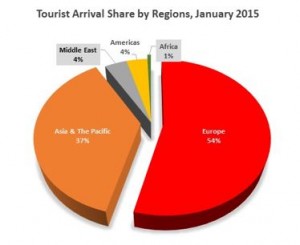Opposition leader and former President Mohamed Nasheed has called for Indian protection and intervention, claiming he fears President Abdulla Yameen may impose a state of emergency as the Maldives’ current political crisis deepens.
“I fear Yameen could impose emergency as he loses further ground. Under such circumstances he will ensure mass arrests, including my arrest. I urge India, as our closest neighbour, to intervene at that stage to ensure safety and security of political activists,” he told the Indian Economic Times.
The call comes in the wake of an alliance between MDP and former ruling coalition partner Jumhooree Party (JP) against what they allege to be Progressive Party of the Maldives’ (PPM) repeated violation of the constitution.
The opposition has called for President Yameen’s resignation and the MDP has since pledged to help JP Leader Gasim Ibrahim to assume the presidency.
Speaking to Minivan News today, PPM’s parliamentary group leader MP Ahmed Nihan condemned Nasheed’s “irresponsible” call on India to intervene in the Maldives’ internal affairs.
“Urging India to intervene in a sovereign nation’s internal affairs is a betrayal of our constitution. Its results will be bitter, especially on the Maldivian public,” he said.
Meanwhile, Foreign Minister Dunya Maumoon in a tweet expressed confidence that India would not intervene in Maldives’ domestic politics.
Govt has no doubt that India will adhere to the principle of Panchsheel and will not intervene in domestic politics of Maldives. Min.Dunya
— MFA-Maldives (@MDVForeign) February 20, 2015
Fresh polls
Nasheed accused President Yameen of authoritarianism, alleging he had undermined independent institutions and illegally sacked the Chief Justice and the Auditor General.
He told the Economic Times the opposition coalition is “certain to win majority on the floor” when the People’s Majlis resumes parliamentary sessions in March.
Afterwards, the opposition coalition would force Yameen to resign and pave way for fresh presidential polls in which they would field Gasim as an opposition candidate, he said.
“While any president of Maldives can continue without majority in parliament, it is morally difficult for him or her to continue in office. Besides the president will find it difficult to function as appointments of ministers need parliamentary approval,” he explained.
“Under such circumstances, Yameen will have to resign and there will be fresh presidential polls. MDP has decided to support Gasim as president in this elections and MDP will have ministers in that government. In 2018, MDP will field presidential candidate and Gasim’s Jumhooree Party will support that candidate. We are trying to work on this formula for long-term stability in Maldives.”
The JP and MDP at present control ten and 21 seats respectively. Two JP and one MDP MP recently defected to the PPM, increasing the ruling coalition’s seats to 51 in the 85-member house.
Nasheed has previously predicted ten ruling party MPs would soon join the opposition coalition.
“Jumhooree and our MDP will have a majority in parliament and that will be proved next month. To preempt this, I fear, Yameen will prorogue parliament, prorogue constitution and impose emergency. He may then want to rule by emergency for the rest of three years of presidency. That will be the worst case scenario,” he said.
Nihan countered Nasheed’s statement saying an opposition majority in Majlis “is near impossible” even if PPM MP Ahmed Mahloof leaves the party as rumours suggest.
The Vilimalé MP also dismissed Nasheed’s claim that PPM leader and former President of 30 years Maumoon Abdul Gayoom was “uncomfortable with his half brother, Yameen, the president.”
“There is no political disagreements between Maumoon and Yameen, and there are no fights within the PPM,” he said.
The PPM has held rallies of its own in support of Yameen on Thursday, with a 400-strong youth march in Malé followed by a rally attended by at least 2000 people.
President Yameen has called for the opposition to prove allegations of constitutional breach at court and said the opposition’s claims are “baseless.”
Nasheed had called for Indian help last week, claiming he may be arrested as the judiciary made moves to restart a trial over the controversial detention of Criminal Court Chief Judge Abdulla Mohamed. The Prosecutor General has since withdrawn charges.
Nasheed also sought refuge inside the Indian Embassy in Malé in February 2013 after a court order on the police to present him at court over the judge’s trial.
Related to this story
MDP, JP rally supporters ahead of mass February 27 march
Two JP MPs and 15 councilors defect to PPM
Nasheed asks for India’s protection if jailed
Nasheed leaves Indian High Commission, states “desire for stability”

